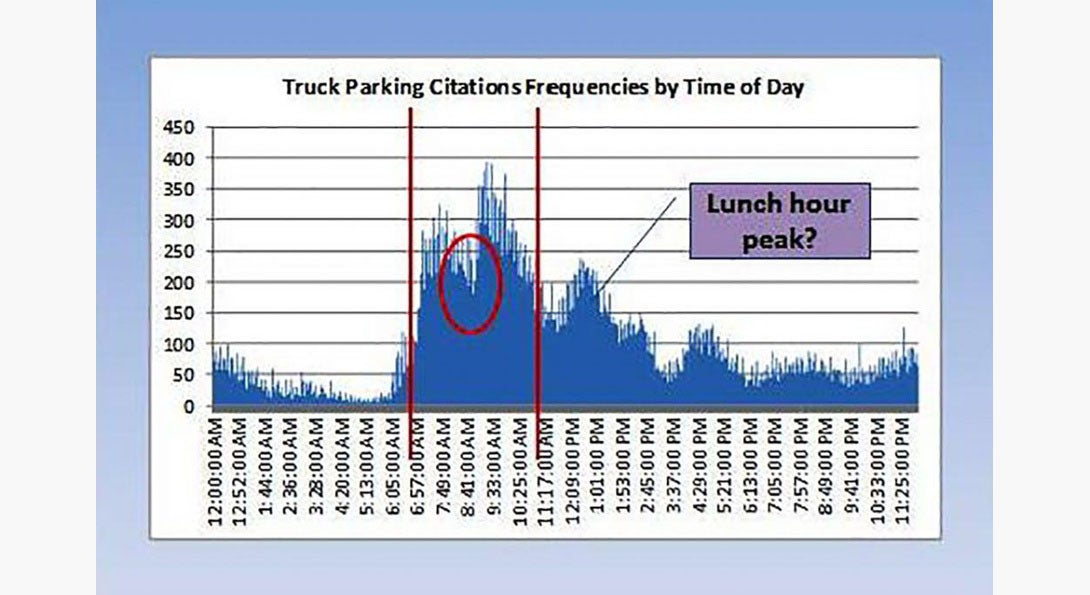Research Project
Analysis of Factors Affecting Truck Parking Violation Frequency in Urban Areas

As an exploratory step toward addressing truck parking problems in urban areas, this study analyzed truck parking citation data in Chicago to identify factors that affect concentration of high density of violations.
- Principal Investigator
- Kawamura, Kazuya
- Research Area(s)
- Data Development
- Freight
- Policy Analysis
- Funding Source
- Center for Urban Transportation Research (CUTR), National Center for Freight and Infrastructure Research and Education (CFIRE)
Abstract
While nearly every driver can recall his/her experiences with frustrations caused by illegally parked delivery or service vehicles, there have not been many studies that actually examined their impacts. A study by Han et al estimated that conservatively, illegal parking of parcel delivery vehicles is the third leading cause of urban non-recurring (i.e. not due to traffic volume) congestion behind crashes and construction. A study by Pivo is the only example to our knowledge that examined the effects of built environment on truck operations. A recent study in New York City developed models for truck parking demand and curb space availability using tax map and property information data. While it is encouraging to see an increased interest in the topic of truck-related conflicts in urban areas, many knowledge gaps still remain. Download the "Analysis of Factors Affecting Truck Parking Violation Frequency in Urban Areas" report.